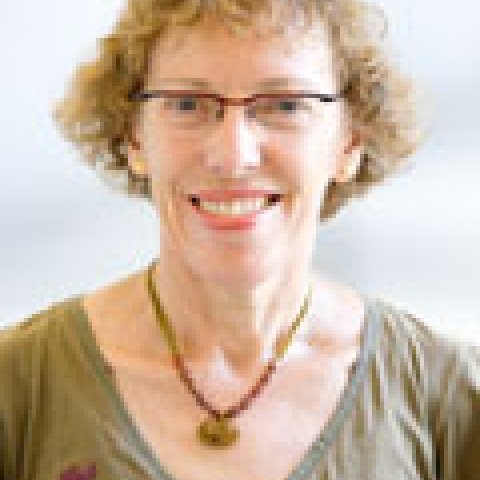Karen Tranberg Hansen
Fellow
Professional Affiliation
Professor, Department of Anthropology, Northwestern University
Expert Bio
Drawing on observations from an anthropological research project conducted between 2001 and 2004, "Youth Matters: Crafting Urban Space in Zambia," is a study of the social, cultural, and economic processes that are affecting young people's possibilities for becoming social adults in the rapidly growing capital Lusaka. Demonstrating how and why youth matters, the study raises critical questions about the role of youth in the social reproduction of cities in the developing world with relevance for both comparative urban research, applied work, and policy.The study described in my fellowship proposal is a product of long-term anthropological engagement with urban life in Lusaka, Zambia's capital, which I have developed during my professional career in anthropology and African Studies, from 1979-82 at the University of Minnesota, and since 1982 at Northwestern University.My research is concerned with the social, cultural, and economic dimensions of urban life in Zambia which I have examined over time and in relationship to changing local and global processes. My first book, Distant Companions: Servants and Employers in Zambia, 1900-1985 (Cornell 1989) is a study of colonial culture, domestic service, and the transformations of the relationship between servants and employers after independence in Zambia in 1964. The anthology I edited, African Encounters with Domesticity (Rutgers 1992) inspired research into the ambiguous experiences of modernity in Africa. My next book, Keeping House in Lusaka (Columbia 1997), draws on more than twenty years of research in Zambia's capital and concerns urban social and economic interaction, including development questions, that arise from the postcolonial period's dramatic economic decline. The concerns of these works shaped my research project on the global circulation of secondhand clothing from the West to the Third World and the local cultural practices this consumption gives rise to in Zambia. My book, Salaula: The World of Secondhand Clothing and Zambia (Chicago 2000), has opened up new research angles, inspiring recent work in India and ongoing research in the Philippines, among others. This research also engaged me actively with dress scholarship, on which I contributed an article to the 2004 Annual Review of Anthropology, "The World in Dress: Anthropological Perspectives on Clothing, Fashion, and Culture." My publication record since 2000 consists of journal articles on various aspects of the global and local processes that converge in the international trade and consumption practices of secondhand clothing, the agency and creativity of local traders and consumers, and the significance of the livelihoods this popular commodity has created. Keeping the development implications within view, I co-edited with Mariken Vaa, a sociologist, Informality Reconsidered: Research from Urban Africa (2004). I also wrote the entry on the Informal Sector for the most recent edition of the International Encyclopedia of Social and Behavioral Sciences. The study described in my Woodrow Wilson proposal is a product of a collaborative, interdisciplinary research project entitled, Youth & the City: Skills, Knowledge, and Social Reproduction, conducted between 2001 and 2004 in Lusaka (Zambia), Recife (Brazil), and Hanoi (Vietnam), funded by the Council for Research on Developing Countries of the Danish International Development Agency (2001-2005). During the academic year 2004-05, my Danish colleagues (two anthropologists, responsible for the research in Recife and Hanoi; three colleagues from geography, education, and media studies); and local collaborators will work on the "project book." As a collaborative enterprise, the project book presents findings from all the research sites and discusses issues specific to each city. Showcasing the interdisciplinary nature of the research project, this comparative study demonstrates what collaborative work across the disciplines can contribute to our understanding of youth in rapidly growing cities in the developing world. With the "project book" well underway and a series of papers on my Lusaka research drafted, I plan to develop the Lusaka study during my 2005-06 fellowship year at the Woodrow Wilson Center by drawing on my detailed anthropological field research.
Education
B.A. (1970) and M.A. (1973) Aarhus University, Denmark; Ph.D. (1979) University of Washington
Subjects
Urban Issues,Youth Development
Experience
- Professor (1995-present), Associate Professor (1989-95), and Assistant Professor (1982-89), Northwestern University
- Assistant Professor of African American and African Studies, University of Minnesota, 1979-82
Expertise
African studies (Southern Africa, particularly Zambia), urban life, consumption, and the informal economy with focus on gender and youth, the international secondhand clothing trade; dress and culture
Wilson Center Project
"Youth Matters: Crafting Urban Space in Zambia"
Project Summary
Drawing on observations from an anthropological research project conducted between 2001 and 2004, this is a study of the social, cultural, and economic processes that are affecting young people's possibilities for becoming social adults in the rapidly growing capital Lusaka. Demonstrating how and why youth matters, the study raises critical questions about the role of youth in the social reproduction of cities in the developing world with relevance for both comparative urban research, applied work, and policy.
Major Publications
- Salaula: The World of Secondhand Clothing and Zambia (Chicago: University of Chicago Press, 2000)
- Keeping House in Lusaka (New York: Colombia University Press, 1997)
- "The World in Dress: Anthropological Perspectives on Clothing, Fashion and Culture" Annual Review of Anthropology, 2004

